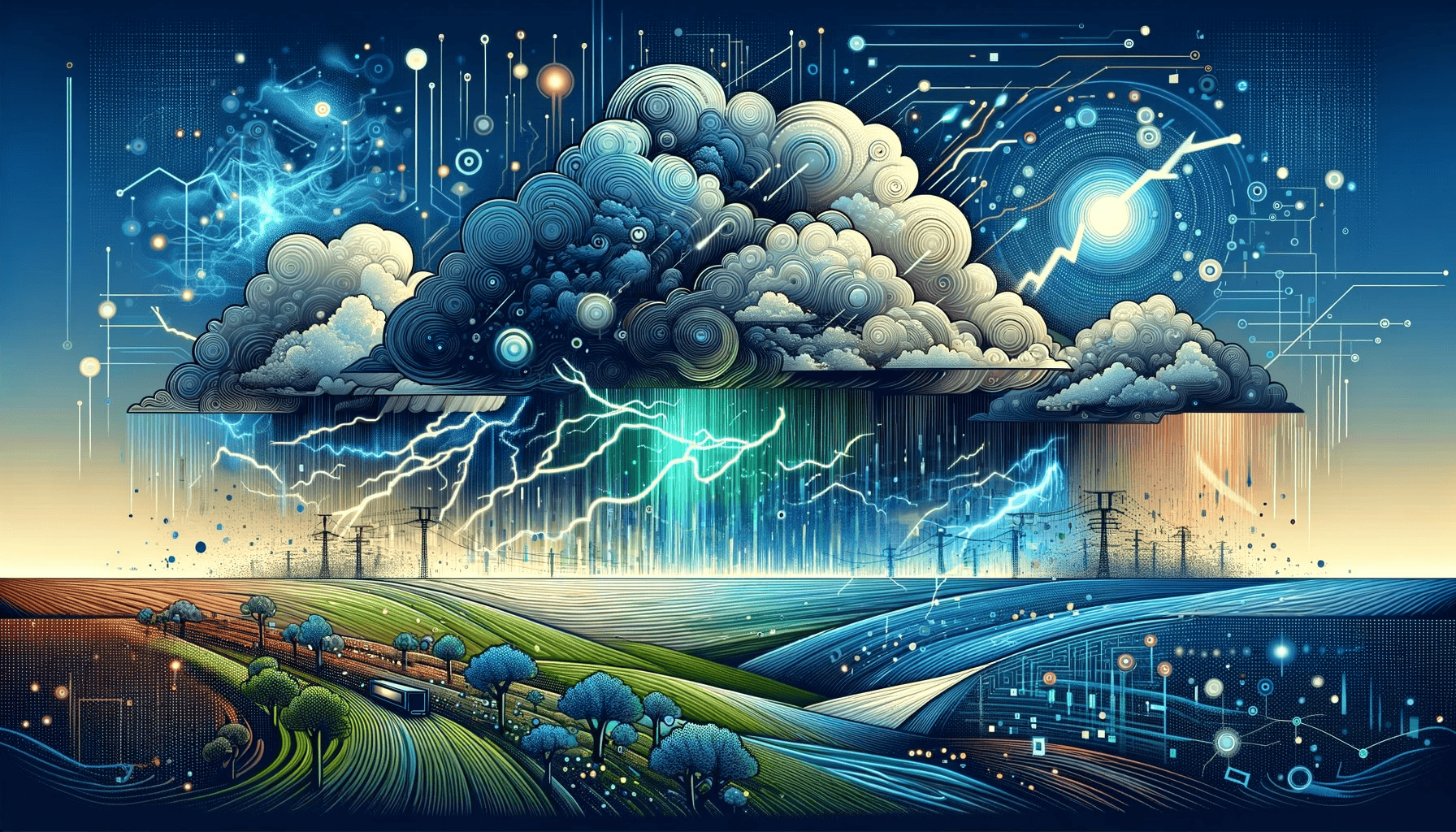
Predicting the weather is notoriously difficult. Not only are there a million and one parameters to consider but there’s also a good degree of chaotic behavior in the atmosphere. But DeepMind’s scientists (the same group that brought us AlphaGo and AlphaFold) have developed a system that can revolutionize weather forecasting. This advanced AI model leverages vast amounts of data to generate highly accurate predictions.
Weather predictions were already getting better
Weather forecasting, an indispensable tool in our daily lives, has undergone tremendous advancements over the years. Today’s 6-day forecast is as good (if not better) than the 3-day forecast from 30 years ago. Storms and extreme weather events rarely catch people off-guard. You may not notice it because the improvement is gradual, but weather forecasting has progressed greatly.
This is more than just a convenience; it’s a lifesaver. Weather forecasts help people prepare for extreme events, saving lives and money. They are indispensable for farmers protecting their crops, and they significantly impact the global economy.
This is exactly where AI enters the room.
DeepMind scientists now claim they’ve made a remarkable leap in weather forecasting with their GraphCast model. GraphCast is a sophisticated machine-learning algorithm that outperforms conventional weather forecasting around 90% of the time.
“We believe this marks a turning point in weather forecasting,” Google’s researchers wrote in a study published Tuesday.
Crucially, GraphCast offers warnings much faster than standard models. For instance, in September, GraphCast accurately predicted that Hurricane Lee would make landfall in Nova Scotia nine days in advance. Currently used models predicted it only six days in advance.
Historical weather data
The method that GraphCast uses is significantly different. Current forecasts typically use a lot of carefully defined physics equations. These are then transformed into algorithms and run on supercomputers, where models are simulated. As mentioned, scientists have this approach with great results so far.
However, this approach requires a lot of expertise and computation power. Machine learning offers a different approach. Instead of running equations on the current weather conditions, you look at the historical data. You see what type of conditions led to what type of weather. It gets even better: you can mix conventional methods with this new AI approach, and get accurate, fast readings.
“Crucially, GraphCast and traditional approaches go hand-in-hand: we trained GraphCast on four decades of weather reanalysis data, from the ECMWF’s ERA5 dataset. This trove is based on historical weather observations such as satellite images, radar, and weather stations using a traditional numerical weather prediction (NWP) to ‘fill in the blanks’ where the observations are incomplete, to reconstruct a rich record of global historical weather,” writes lead author Remi Lam, from DeepMind.
“While GraphCast’s training was computationally intensive, the resulting forecasting model is highly efficient. Making 10-day forecasts with GraphCast takes less than a minute on a single Google TPU v4 machine. For comparison, a 10-day forecast using a conventional approach can take hours of computation in a supercomputer with hundreds of machines.”
The algorithm isn’t perfect, it still lags behind conventional models in some regards (especially in precipitation forecasting). But considering how easy it is to use, it’s at least an excellent complement to existing forecasting tools. There’s another exciting bit about it: it’s open source. This means that companies and researchers can use and change it to better suit their needs.
“By open-sourcing the model code for GraphCast, we are enabling scientists and forecasters around the world to benefit billions of people in their everyday lives. GraphCast is already being used by weather agencies,” adds Lam.
Forecasting in the age of climate change
The significance of this development cannot be overstated. As our planet faces increasingly unpredictable weather patterns due to climate change, the ability to accurately and quickly predict weather events becomes a critical tool in mitigating risks. The implications are far-reaching, from urban planning and disaster management to agriculture and air travel.
Moreover, the open-source nature of GraphCast democratizes access to cutting-edge forecasting technology. By making this powerful tool available to a wide range of users, from small-scale farmers in remote areas to large meteorological organizations, the potential for innovation and localized weather solutions increases exponentially.
No doubt, we’re witnessing another field where machine learning is making a difference. The marriage of AI and weather forecasting is not just a fleeting trend but a fundamental shift in how we understand and anticipate the whims of nature.









